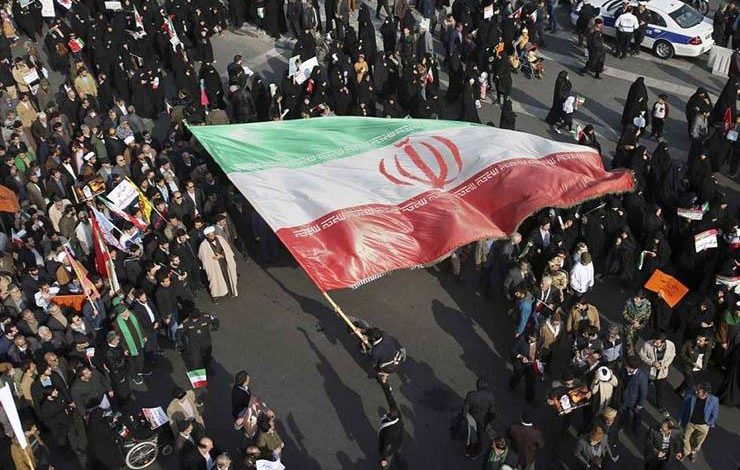Iran’s Revolutionary Guard suppresses protesters over water shortage

Iranians are caught between the Mullah regime’s oppressive policies and the harsh economic conditions, which confirm in numbers that Iranians are living in the worst era in the history of the Persian state.
Recently, human rights reports revealed prison sentences of up to 160 years and 1,480 lashes, in addition to fines being imposed on 22 Iranian protesters who took part in protests against the project to transfer water from Sebzkoh to Burahna in the western Iranian province of Chaharmahal and Bakhtiari.
Reports indicate that the transfer of this project was a response from the Iranian Revolutionary Guard and Ministry of Energy after a complaint about their lack of water, which is the suffering that all the Iranian people face today. The request of the Revolutionary Guards was answered by the government, unconcerned with the state of the citizens of Sebzkoh after their lack of water.
According to the Iranian website “Harana”, the verdict against the Iranian protesters was issued by the criminal court of Bruggen city, headed by Judge Mohsen Jalili Birani. The pictures published by the Iranian website show that the sentence is against 37 protesters who refused to carry water from Sebzkoh on the 5th of April.
The first-instance defendants, 20 accused, were sentenced to seven years’ imprisonment, 74 lashes and fines by the Bruggen Criminal Court and were charged with broad offenses, such as: disturbing public order and security and participating in the destruction of state and public property.
In addition to prison sentences and flogging, the court fined the 11 and 12 defendants and acquitted 15 of the protesters.
After the rally, unknown assailants attacked the Sebzkoh tunnel factory, but the defendants denied involvement.
According to the Iran International opposition website, the headquarters of the IRGC’s Khatam-al Anbiya was the primary complainant against these protesters, and it is the implementer of this project and most of Iran’s major water transport projects, which were developed in accordance with the patronage considerations of the country’s dominant Revolutionary Guard.
The Iranian protests included the town of Baldagi in Chaharmahal and Bakhtiari Province, where people also turned out to refuse to transfer Sabzkoh’s water to Burggen.
Iran’s ISNA news agency says: The project in question and the cause of the crisis, known as the Sebzkoh Water Tunnel, is one of the projects that has sparked many protests in Chaharmahal and Bakhtiari in recent years, it said, adding that the project’s operational processes began even before any legal permits or environmental approvals were obtained.
Participants in this project say that its purpose is to supply water to the industries of East Chaharmahal and Bakhtiari, and to provide the cities of Gandoman and Baldaji with drinking water, while the truth is that behind it is the Revolutionary Guards. This project will cause drought in the area, whose protesting sons were punished.
Villagers in the area fear the water shortage crisis and the drying up of three springs in the area after the project is transferred.
The problem of drought and water scarcity is not new in Iran. Water transportation projects from the provinces of Khuzestan, Chaharmahal and Bakhtiari to Isfahan, as well as water transport projects from Isfahan to Yazd Province, have recently sparked large-scale protests, which prompted Isfahan farmers to stage a sit-in last November 2021, for more than two weeks.
The unprecedented Isfahan protests took place in the dry Zayandeh rud River, but the sit-in ended with security forces raiding and burning farmers’ tents.












